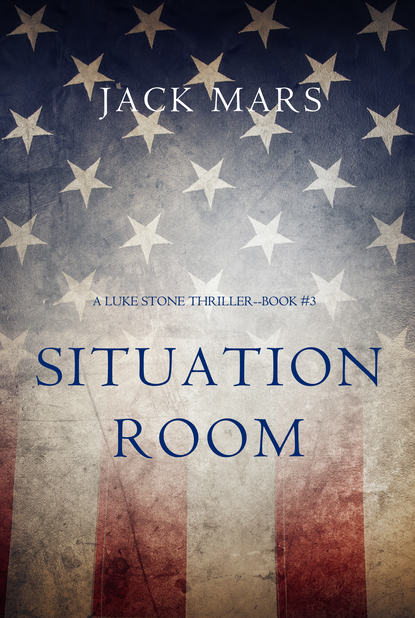По всем вопросам обращайтесь на: info@litportal.ru
(©) 2003-2025.
✖
Situation Room
Настройки чтения
Размер шрифта
Высота строк
Поля
On the screen, a photo of a large dam appeared. Large wasn’t quite the word. Massive was more to the point. A six-story building sat in front of the dam, the control center, with six partially open floodgates below it. The building was dwarfed by the dam rising behind it. Along the edge was a hydroelectric power generating station with row after row after row of transformers.
“Luke, this is Black Rock Dam,” Kurt Kimball said. “It is approximately fifty stories tall and impounds Black Rock Lake, which is sixteen miles long, four hundred feet deep, and at any given time holds about ten billion cubic feet of water. As you probably saw on the news, just after seven a.m. this morning, the six floodgates you see along the bottom opened fully, and remained locked open for three and a half hours, until technicians could de-couple them from the computer system that operates them, and finally close them manually.”
Kimball used a laser pointer to indicate the floodgates.
“If you look at the gates in relation to the building, you will see that they are quite large. Each one is ten meters tall, which means that six three-story-high jets of water were released all at once. The water pressure of Black Rock Lake sent the flood downstream at approximately twenty miles per hour, which doesn’t sound all that fast until you’re standing in front of it. Until this morning, the Black Rock Resort stood three miles south of the dam. The resort was made almost entirely of wood. The initial wall of water completely destroyed the resort, and as far as we know, the only survivors were a handful of people who left early to hike to the top of the dam, or to take drives on nearby scenic roads.”
“How many people were staying at the resort?” Luke said.
“There were two hundred and eighty-one guests listed in their online reservations system. Perhaps twenty of them either left the resort before the flood, or never arrived there for one reason or another. All of the others were swept away and are assumed dead. Combined with other disasters downstream, it will be several days before we have any kind of accurate body count.”
Luke got that odd familiar feeling. It returned like an old friend, one that you hadn’t seen in a while and were hoping not to see anymore. It came as a sickness in the pit of his stomach. It was death, the deaths of innocent people, minding their own business. Luke had dealt with it for far too long.
“Did anyone try to warn them?” he said.
Kimball nodded. “Workers in the dam’s control center called the resort on the phone as soon as they realized the floodgates were open, but apparently the flood had already reached there by the time they got in touch with anyone. Someone did pick up, but the conversation ended almost immediately.”
“Jesus. And what were the disasters downstream you mentioned?”
A map appeared on the screen. It showed the lake, the dam, the resort, and additional towns nearby. Kimball indicated a town. “The town of Sargent lies another sixteen miles south of the resort. It’s a town of twenty-three hundred people, and a gateway for visitors to the National Park. Most of Sargent is situated on a small hill, and the town received slightly more warning than the resort. They got enough warning, in fact, that the town emergency sirens sounded before the flood came. With an added sixteen miles to travel, the floodwaters hit with somewhat less force in Sargent, and many of the houses and buildings in town withstood the initial force of the flood and were not washed away. Many of the low-lying houses were, however, quickly inundated. More than four hundred people from Sargent are currently missing and presumed dead.”
Luke stared at the screen as Kimball’s laser pointer fell on the towns of Sapphire, Greenwood, and Kent, each one somewhat farther from the dam than the one before, and each one the site of a disaster in its own right. The scale of it was devastating, and although the floodgates were closed, the flood itself was going to continue traveling south and downhill for the next several days. Two dozen towns had been evacuated, but more fatalities were practically guaranteed. Some people in remote areas wouldn’t leave, or couldn’t.
“And you think hackers did this? How is that possible?”
Kimball glanced around the room. “Does everyone here have clearance to hear this next part? Can we please sweep anyone out who doesn’t have clearance?”
Low murmuring went around the room, but no one moved. “Okay, I’m going to assume that anyone here belongs here. If not, it’s your ass. Remember that.”
He turned back to Luke.
“The dam was built in 1943 to generate much-needed electricity during the war. It was built and is operated to this day by the Tennessee Valley Authority. For most of the dam’s life, the floodgates were operated by controls less sophisticated than your garage door opener. About twenty years ago, TVA started looking at ways to save money by automating their dams. Control centers in old hydroelectric dams are incredibly inefficient by modern standards. You’ve basically got people there around the clock, and their jobs include reading and writing logbooks, and opening and closing the spillways from time to time. The floodgates are almost never opened.
“TVA was thinking they could aggregate ten or twenty dam control centers into one centrally located control center. So they retro-fitted several dams with computer software that can be operated remotely. Black Rock was one of them. We’re talking about very simple software – yes means open the gates, no means close them. For one reason or another, they never did create the central control center, but they did make the software internet-based, in case they ever decided to do so. The final nail, so to speak, is that the science of encryption barely existed at that time, and the software has never been updated since it was first installed.”
Luke stared, stunned.
“You’re kidding.”
He shook his head.
“It was easy to hijack this system. It’s just that no one ever thought to do it before. What terrorist would even know this dam exists? It’s in a remote corner of a rural state. You don’t get a lot of style points for attacking Sargent, North Carolina. But as we’ve discovered, the results are as devastating as if they had attacked Chicago.”
Susan spoke for the first time during Kimball’s presentation. “And the worst thing about it is there are hundreds of dams like this across the United States. The truth is we don’t even know how many there are, and how many are vulnerable.”
“And why do we think the Chinese did it?” Luke said.
“Our own hackers at NSA traced the infiltration to a series of IP addresses in northern China. And we traced communication with those addresses to an internet account at a motel in Asheville, North Carolina, sixty miles east of the Black Rock Dam. The communications took place in the forty-eight hours before the attack. A SWAT team from the Bureau of Alcohol, Tobacco, and Firearms operates in that region, raiding unlicensed distilleries and breweries. That team was diverted to the motel, did a takedown of the room in question, and arrested a thirty-two-year-old Chinese national named Li Quiangguo.”
An image of a Chinese man being led from a small nondescript motel by a group of tall and broad ATF officers appeared on the screen. Another image appeared of the same man standing on a narrow roadway across from a lake. He stood in front of a historic plaque that read Black Rock Dam – 1943, with a couple of paragraphs of description below.
“Although he has travel documents including a passport under this name, we don’t believe this is the man’s real name. As you know, the sequence of names in China is reversed – the surname comes first, followed by the given name. Li is one of the most common surnames in China, practically a generic name, similar to Smith in the United States. And Quiangguo, in Mandarin Chinese, means Strong Nation. This was a name with militaristic connotations that was very common after the Chinese Revolution, but fell into disfavor probably forty years ago. Further, Li was found with a handgun in his possession, as well as a small vial of cyanide pills. We believe he is a Chinese government agent, operating under an alias, who was supposed to kill himself if he was about to get caught.”
“So he got cold feet,” Luke said.
“Either that, or he just didn’t get to the pills in time.”
Luke shook his head. “After an operation like this one, an agent willing to kill himself would be holding the pill bottle in his hand, or have it in his pocket, twenty-four hours a day. What were the communications?”
“They were a series of encrypted emails. We haven’t broken the encryption yet, and it may be weeks before we do. It’s one they haven’t seen at NSA. Very complex, very tough to take down. So at this moment, we have no idea what the content of the emails is.”
“Is the man talking?” Luke said.
Kimball shook his head. “He’s being held in a cabin at a FEMA detention center in northern Georgia, about ninety miles southeast of the attack site. He insists he’s simply a tourist who was in the wrong place at the wrong time.”
“That’s why we called you,” Susan said. “We’d like you to go have a chat with him. We thought he might speak to you.”
“Have a chat,” Luke said.
Susan shrugged. “Yes.”
“Get him to talk?”
“Yes.”
“For that, I’ll probably need my team with me,” Luke said.
A look passed between Susan, Kurt Kimball, and Kat Lopez.
“Perhaps we’d better discuss that in private,” Kimball said.
*
“Okay, Susan, so this is the part where you tell me again that the Special Response Team has been disbanded, right?”
“Luke…” she began.
They were sitting upstairs in Susan’s study. The study was just as Luke remembered it. A large rectangular room with hardwood floors and a white carpet in the middle. The carpet served as the focal point for a sitting area with big comfortable upright chairs and a coffee table.
One entire wall of the study was a floor-to-ceiling bookcase. The bookcase reminded Luke of The Great Gatsby.
And then there were the windows. Giant, gracious, floor to ceiling windows which gave expansive views of the Naval Observatory’s rolling grounds. The windows faced southwest and let in the afternoon light. The light was like something a master artist would try to capture.
The days were clearly getting shorter. Although it wasn’t yet 7 p.m., early evening sunlight streamed through her windows. The day was already ending. Luke thought again briefly of his interaction with Becca when he dropped Gunner off. He shook the image away. It was too much to think about.
He sat on the opposite side of the coffee table from the President. Kurt Kimball sat at an angle to both of them. Kat Lopez stood behind Susan and to her right.
“Yes,” Susan said. “There is no more Special Response Team. Most of the former staff have been absorbed into other roles within the FBI. At this point, it would be rather difficult to rebuild what you think of as your team.”
“Luke, this is Black Rock Dam,” Kurt Kimball said. “It is approximately fifty stories tall and impounds Black Rock Lake, which is sixteen miles long, four hundred feet deep, and at any given time holds about ten billion cubic feet of water. As you probably saw on the news, just after seven a.m. this morning, the six floodgates you see along the bottom opened fully, and remained locked open for three and a half hours, until technicians could de-couple them from the computer system that operates them, and finally close them manually.”
Kimball used a laser pointer to indicate the floodgates.
“If you look at the gates in relation to the building, you will see that they are quite large. Each one is ten meters tall, which means that six three-story-high jets of water were released all at once. The water pressure of Black Rock Lake sent the flood downstream at approximately twenty miles per hour, which doesn’t sound all that fast until you’re standing in front of it. Until this morning, the Black Rock Resort stood three miles south of the dam. The resort was made almost entirely of wood. The initial wall of water completely destroyed the resort, and as far as we know, the only survivors were a handful of people who left early to hike to the top of the dam, or to take drives on nearby scenic roads.”
“How many people were staying at the resort?” Luke said.
“There were two hundred and eighty-one guests listed in their online reservations system. Perhaps twenty of them either left the resort before the flood, or never arrived there for one reason or another. All of the others were swept away and are assumed dead. Combined with other disasters downstream, it will be several days before we have any kind of accurate body count.”
Luke got that odd familiar feeling. It returned like an old friend, one that you hadn’t seen in a while and were hoping not to see anymore. It came as a sickness in the pit of his stomach. It was death, the deaths of innocent people, minding their own business. Luke had dealt with it for far too long.
“Did anyone try to warn them?” he said.
Kimball nodded. “Workers in the dam’s control center called the resort on the phone as soon as they realized the floodgates were open, but apparently the flood had already reached there by the time they got in touch with anyone. Someone did pick up, but the conversation ended almost immediately.”
“Jesus. And what were the disasters downstream you mentioned?”
A map appeared on the screen. It showed the lake, the dam, the resort, and additional towns nearby. Kimball indicated a town. “The town of Sargent lies another sixteen miles south of the resort. It’s a town of twenty-three hundred people, and a gateway for visitors to the National Park. Most of Sargent is situated on a small hill, and the town received slightly more warning than the resort. They got enough warning, in fact, that the town emergency sirens sounded before the flood came. With an added sixteen miles to travel, the floodwaters hit with somewhat less force in Sargent, and many of the houses and buildings in town withstood the initial force of the flood and were not washed away. Many of the low-lying houses were, however, quickly inundated. More than four hundred people from Sargent are currently missing and presumed dead.”
Luke stared at the screen as Kimball’s laser pointer fell on the towns of Sapphire, Greenwood, and Kent, each one somewhat farther from the dam than the one before, and each one the site of a disaster in its own right. The scale of it was devastating, and although the floodgates were closed, the flood itself was going to continue traveling south and downhill for the next several days. Two dozen towns had been evacuated, but more fatalities were practically guaranteed. Some people in remote areas wouldn’t leave, or couldn’t.
“And you think hackers did this? How is that possible?”
Kimball glanced around the room. “Does everyone here have clearance to hear this next part? Can we please sweep anyone out who doesn’t have clearance?”
Low murmuring went around the room, but no one moved. “Okay, I’m going to assume that anyone here belongs here. If not, it’s your ass. Remember that.”
He turned back to Luke.
“The dam was built in 1943 to generate much-needed electricity during the war. It was built and is operated to this day by the Tennessee Valley Authority. For most of the dam’s life, the floodgates were operated by controls less sophisticated than your garage door opener. About twenty years ago, TVA started looking at ways to save money by automating their dams. Control centers in old hydroelectric dams are incredibly inefficient by modern standards. You’ve basically got people there around the clock, and their jobs include reading and writing logbooks, and opening and closing the spillways from time to time. The floodgates are almost never opened.
“TVA was thinking they could aggregate ten or twenty dam control centers into one centrally located control center. So they retro-fitted several dams with computer software that can be operated remotely. Black Rock was one of them. We’re talking about very simple software – yes means open the gates, no means close them. For one reason or another, they never did create the central control center, but they did make the software internet-based, in case they ever decided to do so. The final nail, so to speak, is that the science of encryption barely existed at that time, and the software has never been updated since it was first installed.”
Luke stared, stunned.
“You’re kidding.”
He shook his head.
“It was easy to hijack this system. It’s just that no one ever thought to do it before. What terrorist would even know this dam exists? It’s in a remote corner of a rural state. You don’t get a lot of style points for attacking Sargent, North Carolina. But as we’ve discovered, the results are as devastating as if they had attacked Chicago.”
Susan spoke for the first time during Kimball’s presentation. “And the worst thing about it is there are hundreds of dams like this across the United States. The truth is we don’t even know how many there are, and how many are vulnerable.”
“And why do we think the Chinese did it?” Luke said.
“Our own hackers at NSA traced the infiltration to a series of IP addresses in northern China. And we traced communication with those addresses to an internet account at a motel in Asheville, North Carolina, sixty miles east of the Black Rock Dam. The communications took place in the forty-eight hours before the attack. A SWAT team from the Bureau of Alcohol, Tobacco, and Firearms operates in that region, raiding unlicensed distilleries and breweries. That team was diverted to the motel, did a takedown of the room in question, and arrested a thirty-two-year-old Chinese national named Li Quiangguo.”
An image of a Chinese man being led from a small nondescript motel by a group of tall and broad ATF officers appeared on the screen. Another image appeared of the same man standing on a narrow roadway across from a lake. He stood in front of a historic plaque that read Black Rock Dam – 1943, with a couple of paragraphs of description below.
“Although he has travel documents including a passport under this name, we don’t believe this is the man’s real name. As you know, the sequence of names in China is reversed – the surname comes first, followed by the given name. Li is one of the most common surnames in China, practically a generic name, similar to Smith in the United States. And Quiangguo, in Mandarin Chinese, means Strong Nation. This was a name with militaristic connotations that was very common after the Chinese Revolution, but fell into disfavor probably forty years ago. Further, Li was found with a handgun in his possession, as well as a small vial of cyanide pills. We believe he is a Chinese government agent, operating under an alias, who was supposed to kill himself if he was about to get caught.”
“So he got cold feet,” Luke said.
“Either that, or he just didn’t get to the pills in time.”
Luke shook his head. “After an operation like this one, an agent willing to kill himself would be holding the pill bottle in his hand, or have it in his pocket, twenty-four hours a day. What were the communications?”
“They were a series of encrypted emails. We haven’t broken the encryption yet, and it may be weeks before we do. It’s one they haven’t seen at NSA. Very complex, very tough to take down. So at this moment, we have no idea what the content of the emails is.”
“Is the man talking?” Luke said.
Kimball shook his head. “He’s being held in a cabin at a FEMA detention center in northern Georgia, about ninety miles southeast of the attack site. He insists he’s simply a tourist who was in the wrong place at the wrong time.”
“That’s why we called you,” Susan said. “We’d like you to go have a chat with him. We thought he might speak to you.”
“Have a chat,” Luke said.
Susan shrugged. “Yes.”
“Get him to talk?”
“Yes.”
“For that, I’ll probably need my team with me,” Luke said.
A look passed between Susan, Kurt Kimball, and Kat Lopez.
“Perhaps we’d better discuss that in private,” Kimball said.
*
“Okay, Susan, so this is the part where you tell me again that the Special Response Team has been disbanded, right?”
“Luke…” she began.
They were sitting upstairs in Susan’s study. The study was just as Luke remembered it. A large rectangular room with hardwood floors and a white carpet in the middle. The carpet served as the focal point for a sitting area with big comfortable upright chairs and a coffee table.
One entire wall of the study was a floor-to-ceiling bookcase. The bookcase reminded Luke of The Great Gatsby.
And then there were the windows. Giant, gracious, floor to ceiling windows which gave expansive views of the Naval Observatory’s rolling grounds. The windows faced southwest and let in the afternoon light. The light was like something a master artist would try to capture.
The days were clearly getting shorter. Although it wasn’t yet 7 p.m., early evening sunlight streamed through her windows. The day was already ending. Luke thought again briefly of his interaction with Becca when he dropped Gunner off. He shook the image away. It was too much to think about.
He sat on the opposite side of the coffee table from the President. Kurt Kimball sat at an angle to both of them. Kat Lopez stood behind Susan and to her right.
“Yes,” Susan said. “There is no more Special Response Team. Most of the former staff have been absorbed into other roles within the FBI. At this point, it would be rather difficult to rebuild what you think of as your team.”











